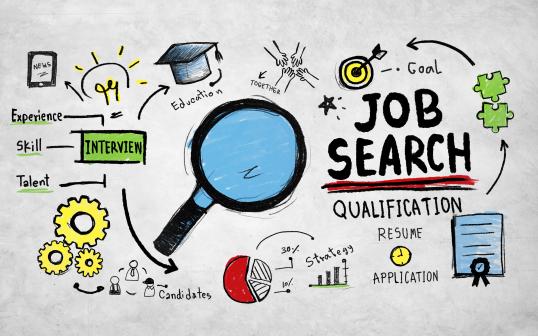Writing a winning cover letter
Cover letters are crucial for recruiters. They give you the chance to introduce yourself and make your experience shine. But how should you go about writing a winning cover letter?
- Keep it short: Your cover letter should be a maximum of a page and shouldn’t include any unnecessary details. Put yourself in the shoes of the recruiter and think about what they want to read.
- Be specific: Always refer to the specific job advert and avoid any generic sentences. Address the skills required point by point and explain how you match them.
- Follow a structure: Introduce yourself and explain why you’re applying for the job. Then outline your relevant skills and experience – how do they meet the job requirements? Finally, round up your letter in the last paragraph.
- Show your enthusiasm: While a cover letter is a formal piece of text, it’s also your first contact with your potential employer. Don’t be afraid to show your enthusiasm and unique personality!
- Check your spelling: Employers can be put off by spelling or grammar mistakes. If you’re not writing in your native language, why not ask somebody else to check it for you?
Perfecting your CV
There are a lot of schools of thought about what makes a perfect CV. Here, we’ve put together some overarching ideas to help get you started.
- Keep it short: Two page is generally accepted as the ideal length when it comes to CVs.
- Make it relevant: What does this recruiter need to know? It’s probably different from the last recruiter, so move things around, take things out and only include what’s important.
- Be confident, but realistic: Make sure that what you write shows your skills and experience, but is also realistic and can be backed up in an interview.
- Focus on what you achieved, not just what you did: Experience is great, but it doesn’t tell the recruiter about what you’ve actually achieved. Including this kind of information shows the added value that you can bring.
- Tailor, tailor, tailor: Make sure that you address what the job advert is looking for and tailor your CV appropriately.
Acing your interview
Up until the interview, all the interviewer had to judge you on was your CV and cover letter. Now it’s time to really impress and we’ve got some advice to help you do that.
- Do your research: Employers are likely to ask you about their organisation. Doing your research beforehand will show your interest and allow you to answer confidently.
- Prepare for questions: Every interview varies, but there are certain standard questions that are likely to come up, and it’s a good idea to prepare your answers to these in advance.
- Prepare your own questions: You’ll usually be given the opportunity to ask questions of your own during an interview – salary expectations, the duration of your contract and insurance are good starting points.
- Be confident: Body language is almost as important as words in an interview. It’s natural to be nervous, but successfully hiding those nerves could increase your chances of success.
- Ask for feedback: Not every interview can be successful, but they can be a useful learning experience if you ask for feedback and use it to refine your approach in the future.
Read more:
Find EURES Advisers
Living and working conditions in EURES countries
EURES Jobs Database
EURES services for employers
EURES Events Calendar
Upcoming Online Events
EURES on Facebook
EURES on Twitter
EURES on LinkedIn
Details
- Publication date
- 6 December 2019
- Authors
- European Labour Authority | Directorate-General for Employment, Social Affairs and Inclusion
- Topics
- Hints and tips
- Youth
- Sector
- Accomodation and food service activities
- Activities of extraterritorial organisations and bodies
- Activities of households as employers, undifferentiated goods- and services
- Administrative and support service activities
- Agriculture, forestry and fishing
- Arts, entertainment and recreation
- Construction
- Education
- Electricity, gas, steam and air conditioning supply
- Financial and insurance activities
- Human health and social work activities
- Information and communication
- Manufacturing
- Mining and quarrying
- Other service activities
- Professional, scientific and technical activities
- Public administration and defence; compulsory social security
- Real estate activities
- Transportation and storage
- Water supply, sewerage, waste management and remediation activities
- Wholesale and retail trade; repair of motor vehicles and motorcycles
